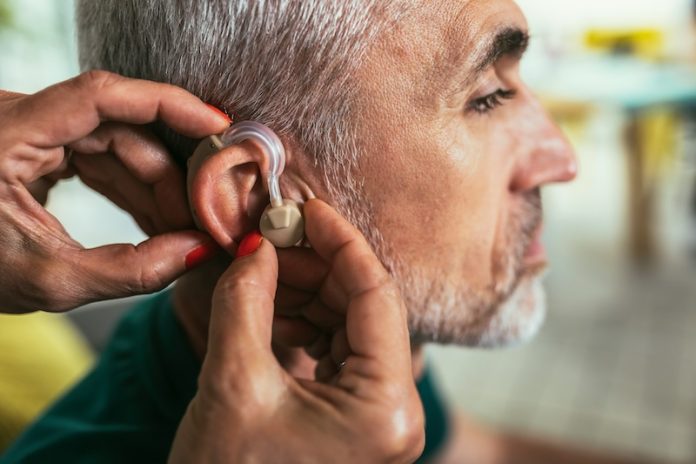
Ever left a concert with your ears ringing? Many know the feeling all too well, and for some, this temporary discomfort can become a lasting problem.
Noise-induced hearing loss and tinnitus, a condition where you hear noises that aren’t there, can drastically affect one’s life.
Thanos Tzounopoulos, Ph.D., along with his team at the University of Pittsburgh School of Medicine, has been on a quest to understand and find treatments for these hearing issues.
In their new research published in the Proceedings of the National Academy of Sciences, the researchers have uncovered how loud noises cause hearing loss.
Their findings reveal it’s all about zinc, a mineral vital for our cells and hearing. When our ears are exposed to loud sounds, too much zinc floods the inner ear, damaging cells and disrupting how they communicate.
What’s exciting is their discovery could lead to a treatment. They found that drugs acting like sponges to soak up the excess zinc could reverse or prevent hearing loss caused by noise.
This means that soon, we might have a simple way to protect our ears from the damage of loud environments, whether it’s at a rock concert or on a noisy construction site.
The significance of this research cannot be understated. Noise-induced hearing loss has been a challenging puzzle for scientists, mainly because the intricate biology of our hearing was not fully understood.
Tzounopoulos and his team’s work shines a light on this issue, offering hope for millions affected by or at risk of hearing loss.
Their experiments with mice have shown promising results. Mice treated with a compound that captures excess zinc were less likely to suffer hearing loss after being exposed to loud noises. This approach could soon be developed into a treatment for humans, potentially available over the counter, offering a straightforward solution to protect against hearing loss.
This research is not just about preventing hearing loss; it’s about improving the quality of life for those with tinnitus and hearing impairments.
By understanding the root cause of noise-induced hearing loss, Tzounopoulos and his team are paving the way for future treatments that could offer relief to those suffering from these conditions.
If you care about dementia, please read studies about walking patterns may help identify specific types of dementia, and common high blood pressure drugs may help lower your dementia risk.
For more information about nutrition, please see recent studies about antioxidants that could help reduce the risk of dementia, and tea and coffee may help lower your risk of stroke, dementia.
The research findings can be found in PNAS.
Copyright © 2024 Knowridge Science Report. All rights reserved.



